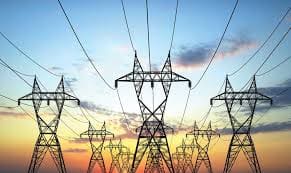The Nigerian electricity sector has experienced about 105 national grid collapses under the administrations of President Bola Tinubu and his predecessor, Muhammadu Buhari despite the $1.4 billion loans secured for investments in the sector in 10 years.
According to the findings of the Punch newspapers, Nigeria secured about 10 loans worth $4.36bn from the World Bank over the past decade to address key challenges in the power sector.
The report noted that although not all the 10 World Bank loans have been disbursed completely, the Nigerian Government and other multilateral agencies have supported the Nigerian power sector financially.
It added that billions of naira to revamp the industry, but despite these funds, the sector is still struggling, witnessing incessant grid collapses, which have repeatedly plunge the country into widespread blackouts.
However, the data from different sources, including the Nigerian Electricity Regulatory Commission (NERC) showed that the grid collapsed approximately 93 times during the eight-year rule of former President Muhammadu Buhari, from June 2015 to May 2023.
The national power grid, according to NERC, is a vast network of electrical transmission lines that link power stations to end-use customers across the country and it is designed to function within specific stability boundaries, including voltage (330kV ± 5.0 per cent) and frequency (50Hz ± 0.5 per cent).
“Any deviation from these stability ranges can result in decreased power quality and, in severe cases, cause widespread power outages ranging from a partial collapse of a section of the grid to a full system collapse.
“When the electricity demand is higher than the supply, the grid frequency drops. Conversely, if supply surpasses demand, the frequency increases. In reaction to the grid operating at a frequency outside of the normal operation range (especially when the frequency is too low), safety settings on generation units may cause the units to shut down.
“This often exacerbates the frequency imbalance on the grid thereby causing more generation units to shut down resulting in a full or partial system collapse,” the report by Punch quoted the NERC as saying.
GIK/APA


